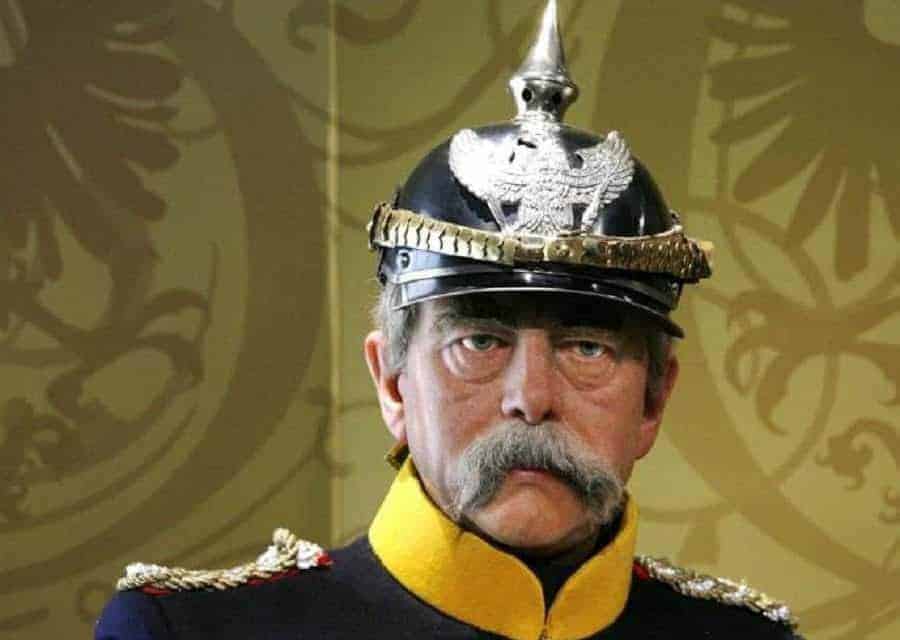Otto von Bismarck divides opinion among historians. Some, like Dr. Neil Faulkner, believe he is the greatest military leader of all time. Others suggest he is responsible for the conflicts of the 20th century as his carefully balanced deck of cards collapsed once he was dismissed from office by Kaiser Wilhelm II.
Certainly, there is no question that Bismarck transformed the fortunes of Germany. When he took over as Prime Minister of Prussia in 1862, it languished behind Russia in the powerbroker stakes. Under Bismarck, it went from being an unstable state with an outdated monarchy to part of a powerful German Empire which was the strongest in Europe. Let’s take a look at the life of the Iron Chancellor.

1 – He Invented Pensions
Perhaps one of the most overlooked Bismarck’s achievements was his idea to provide the elderly with government assistance; in simple terms, he created the idea of the state pension. To be fair, we could give the credit to Kaiser Wilhelm I who wrote to Bismarck about the issue of helping the state’s elderly in 1881. In the letter, he said, “Those who are disabled from work by age and invalidity have a well-grounded claim to care from the state.” It was a radical notion because people simply didn’t retire at that time. They either worked on a farm or, if they were wealthier, managed a large estate.
The Kaiser probably wrote the letter in response to the growing socialist movement across Europe. In Germany, Bismarck’s socialist opponents demanded change and he came up with the idea of a state-funded pension to stave off calls for more radical reforms. He also wanted to ensure the economy kept operating efficiently by maintaining the well-being of workers.
Although Bismarck was the consummate conservative, he was accused of being a socialist for even entertaining the notion of state-aided assistance to the elderly. Yet he was only concerned about keeping the nation in a state of growth so in a speech to the Reichstag in 1881, he said: “Call it socialism or whatever you like. It is the same to me.”
The German retirement system didn’t fully come into being until 1889 when it provided for people over the age of 70. Of course, the average life expectancy in that era was lower than it is now so the German government didn’t pay nearly as much as the average government does on state pensions in the modern age. In fact, there was a degree of cynicism behind the choice of age. It was the average life expectancy in Germany at the time so clearly, the government wanted to save money while appearing to give into public opinion. The system provided disability and contributory retirement benefits too.
When the retirement system was established, Germany almost had the full set of social insurance programs; sickness insurance was created in 1883 and the worker’s compensation program followed suit in 1884. The system was finished off in 1927 with the unemployment insurance program.
There is a myth that the German system adopted 65 as the retirement age because that’s how old Bismarck was at the time. The United States looked at Germany for inspiration when creating its Social Security plan and the suggestion is that America chose 65 as the retirement age to copy Germany. In reality, Bismarck was 74 when the program was established and 70 was the initial retirement age. The age was only lowered to 65 in 1916 and by then, Bismarck was dead for almost two decades.

